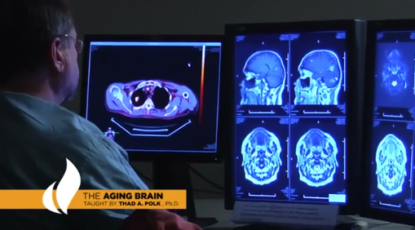-
Get poked: Does acupuncture work?
Victor Katch reviews what “modern” Western science reveals about acupuncture’s effectiveness and whether it’s worth a try.
-
Clinicians could be fooled by biased AI, despite explanations
A U-M study shows accurate AI models improved diagnostic decisions, but biased models led to serious declines. Researchers and policymakers are taking steps to ensure AI models are safe, secure, and trustworthy — and that their use would lead to improved outcomes.
-
Tumor-destroying sound waves receive FDA approval for liver treatment in humans
Technique developed at U-M provides a noninvasive alternative to surgery, chemotherapy, and radiation treatments for cancer. A human trial underway since 2021 at the Rogel Cancer Center and other locations demonstrates the technology’s ability to meet the testing’s primary effectiveness and safety targets.
-
U-M discovery dramatically reduces time it takes to build molecules
With a big assist from artificial intelligence and a heavy dose of human touch, U-M researchers have discovered how to speed up the time-consuming chemical process of building molecules that will be tomorrow’s medicines, agrichemicals, or materials.
-
A new weapon against HIV
Researchers have discovered an antibiotic molecule that enables the immune system to kill HIV-infected cells. Now the quest begins to optimize the compound and move closer to a viable therapy.
-
Promising new test could advance Alzheimer’s treatment
A new blood test may detect this harrowing disease before symptoms appear, which would offer an affordable alternative to the brain imaging and behavioral tests that often fail to identify Alzheimer’s in its earliest stages.
-
How does long-distance running affect you?
What can the myth of Pheidippides teach us about endurance training?
-
Fake sweeteners make for real problems
Victor Katch reports on the disturbing surge in artificial sweeteners in our food supply and warns about their harmful effects.
-
Your incredible shrinking cortex
Fretting about brain function as you get older? Fear not, says U-M psychologist Thad Polk. The brain doesn’t take age-related deficits lying down.








